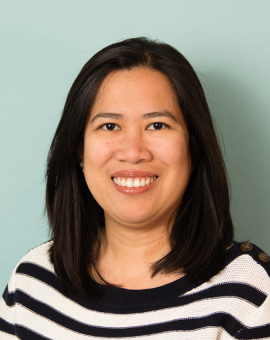Indigenous Peoples Champions for the Philippines

THE DILEMMA OF INDIGENOUS PEOPLES DISCRIMINATION
With approximately 17 million Indigenous Peoples (IPs) living in the Philippines, the highest IP population are located in central Luzon and Mindanao. Despite Indigenous Peoples’ extensive societal and cultural contributions, their communities remain among the most vulnerable and discriminated against.
In the Cordillera and Bangsamoro, throughout their lives, IPs face multiple layers of social discrimination, economic marginalization, and political disempowerment that must be addressed at the institutional and legislative levels. This was exacerbated during the Covid-19 pandemic, as Indigenous Peoples suffered exponentially due to displacement and hostilities instigated by armed groups who want to occupy their lands.
Despite the existence of the Indigenous Peoples Rights Act (IPRA) and the Bangsamoro Organic Law (BOL), which protect and promote the rights for IPs, there continues to be gaps and overlaps in the mandates of government agencies.
A CALL FOR INCLUSION AND PARTICIPATION
In order to respond to multiple types of discrimination that the indigenous communities are exposed to, the ’Indigenous Peoples Champions for the Philippines’ project (which began in 2021) has been using a capacity development and local systems approach. Local champions empowered with knowledge and tools to resolve these challenges are more sustainable than institutions solely leading the advocacy initiatives.
National government plans being prepared to pursue, transition and operationalize autonomy in Cordillera and Bangsamoro, and there is an opportunity to advocate for Indigenous Peoples’ inclusion in the planning processes. The project serves as a light of hope for a more inclusive and prosperous future for the IP community.
UPHOLDING IP CHAMPIONS
The project aims to support IP groups in the Bangsamoro Autonomous Region in Muslim Mindanao (BARMM) and the Cordillera on two levels: Advocacy and
Institution engagement.
Over the long term, the project envisions that all will become champion leaders who can work with institutions for the protection of indigenous rights. It will help shape the foundation for meaningful and sustainable inclusion of the Indigenous Peoples agenda, especially in the governance and development processes within BARMM and Cordillera.
40 ADVOCACY CHAMPIONS -- Forty advocacy champions from the indigenous groups in BARMM and the Cordillera will be trained and equipped with understanding the legal and institutional framework for indigenous rights in the Philippines. This will allow them to collaborate and build partnerships with local key agencies and actors in pursuit of better policy for and protection of indigenous rights.
60 INSTITUTIONAL CHAMPIONS -- Sixty institutional champions will be trained and equipped to: 1) facilitate meaningful participation of IP champions, and 2) fulfill their specific role and mandate to work collaboratively with indigenous peoples to respond to rights violations and promote better protection of indigenous rights.
This project is led by the International Institute for Democracy and Electoral Assistance (International IDEA) and the Institute for Autonomy and Governance (IAG) with funding support from the European Union.
Read more details in the Programme Brief on Indigenous Peoples Champions for the Philippines.
Key contacts




